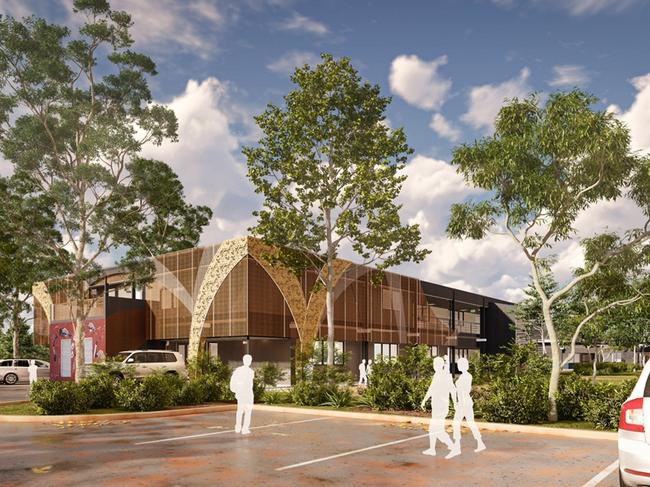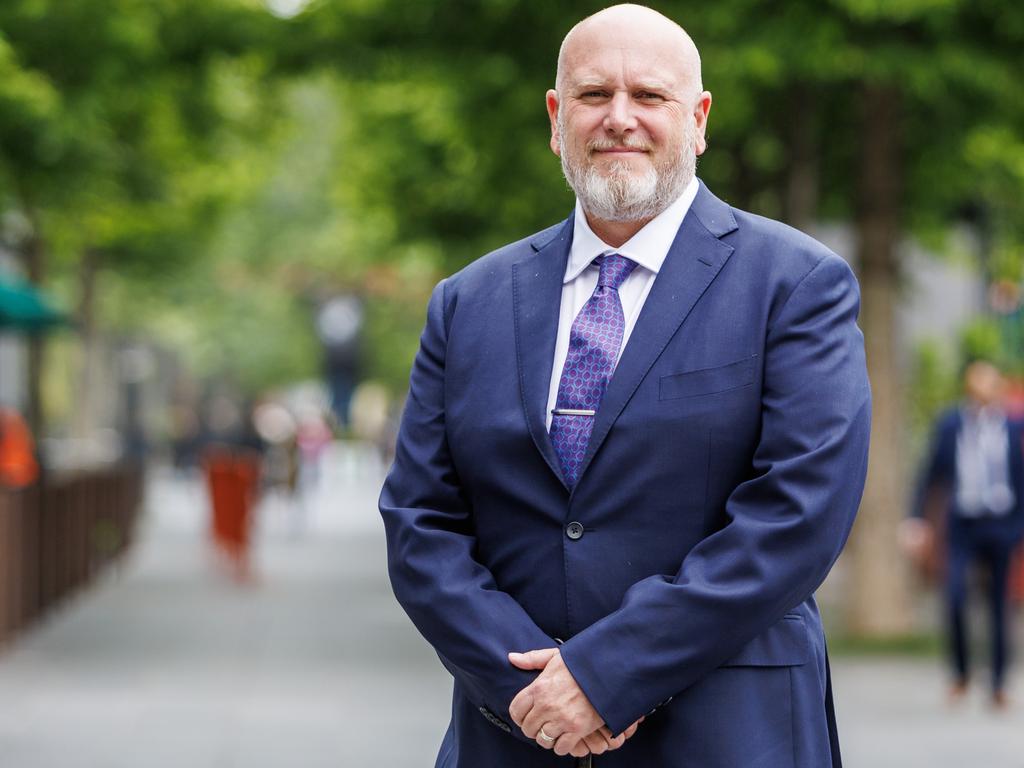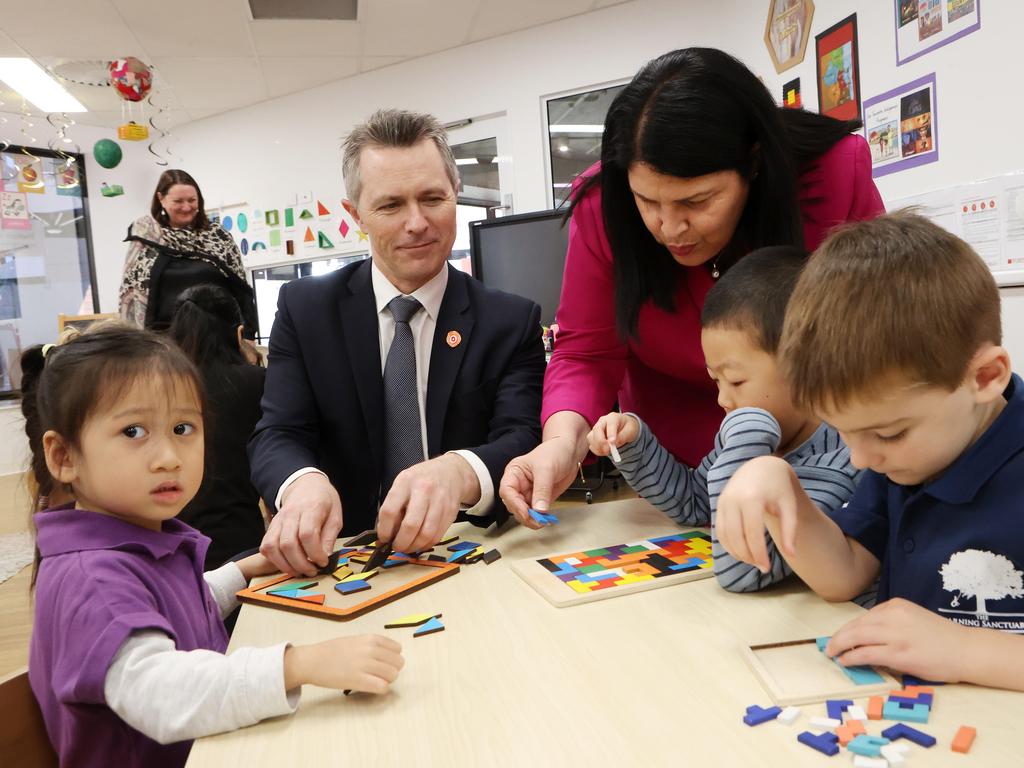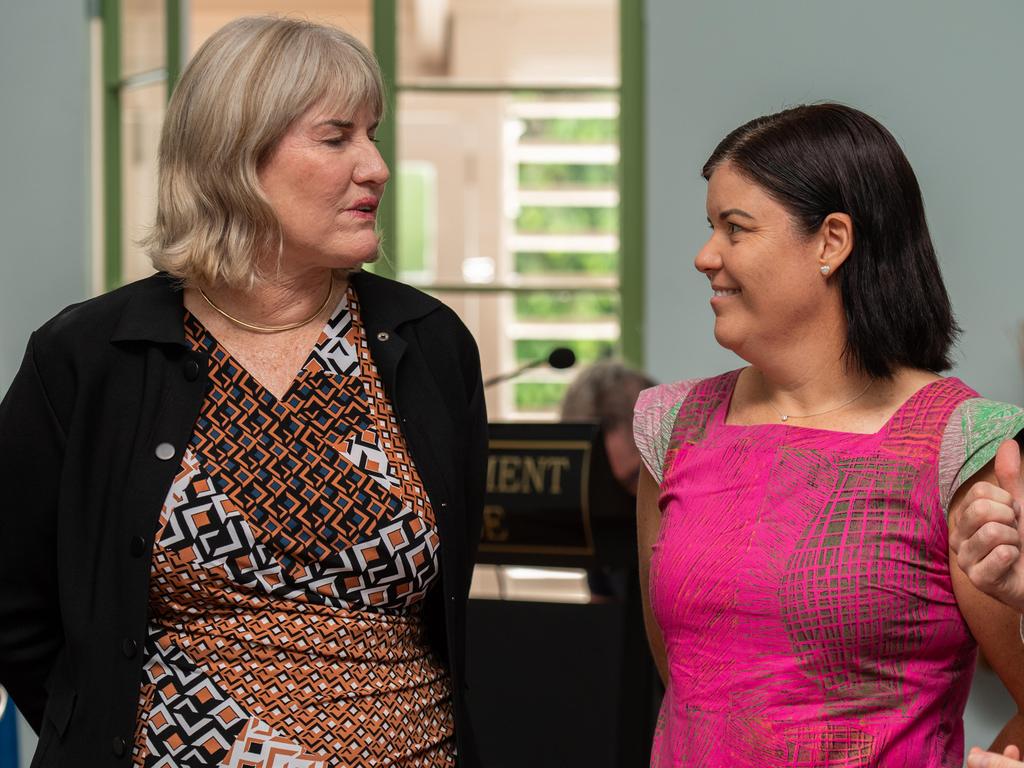For Katherine’s high achiever, success goes with the Territory
Katherine High School principal Nick Lovering rejects the description of him as a mover-and-shaker, but with the announcement of a new $15.7m STEAM centre, his results are undeniable.

Katherine High School principal Nick Lovering rejects the description of him as a mover-and-shaker, but with the announcement of a new $15.7m STEAM (science, technology, engineering, arts and mathematics) centre at the school, his results are undeniable.
Katherine High is the only public school in the Territory town, servicing a school zone the size of Victoria and made up of 70 per cent Indigenous students.
Mr Lovering entered the school in 2021, inheriting a host of challenges that he has tackled in record time.
The new centre will merge and refurbish Katherine High’s maths, science and arts facilities, which have been left unaltered since the school was built in 1988. It will also serve as the school’s new music centre.

“They were due for refurbishment. We’re looking at creating an environment where we can teach the STEAM subjects and use the latest modern architecture to create spaces that are flexible,” Mr Lovering said.
“We’ll have a new music centre with recording studios. We’ll have some new art studios, and we’ll have a new gallery space.”
It includes four science labs, and a floor of general learning spaces. Mr Lovering hopes these can allow the school to respond to the industries around Katherine, and provide a better entry into the working world for its students.
Mr Lovering previously served as Katherine’s regional director, maintaining 28 schools in the region, following a tenure as the principal of Casuarina Street Primary School.
“In terms of being a ‘mover-and-shaker’, I’m probably just a passionate local more than anything,” he said.
“I try to have a good understanding of what our young people are capable of, but I also have a good understanding of some of the complexities and some of the issues that affect them.”
About 70 per cent of Katherine High’s students are Indigenous, with 31 First Nations languages spoken on its grounds.
Mr Lovering argued the trick to his success was pushing teachers to have higher expectations of their students, rather than giving in to the troubles the school had encountered due to its remoteness.
“The school had stopped having assemblies because the behaviour of young people in the assembly hall wasn’t being managed well,” he said. “Now we have assemblies and young people are proud to get up on stage and receive positive recognition.
“It’s totally turned around with a bit of boundaries and some love and support. There’s no real magic ingredient. It’s just that consistency that’s important.”
The school was last refurbished in 2019, when the library and study areas were upgraded using the Building Better Schools grant.
“In terms of the lobbying, (the Territory government) has been very receptive. And it hasn’t been onerous, there’s been a lot of support,” Mr Lovering said.








To join the conversation, please log in. Don't have an account? Register
Join the conversation, you are commenting as Logout